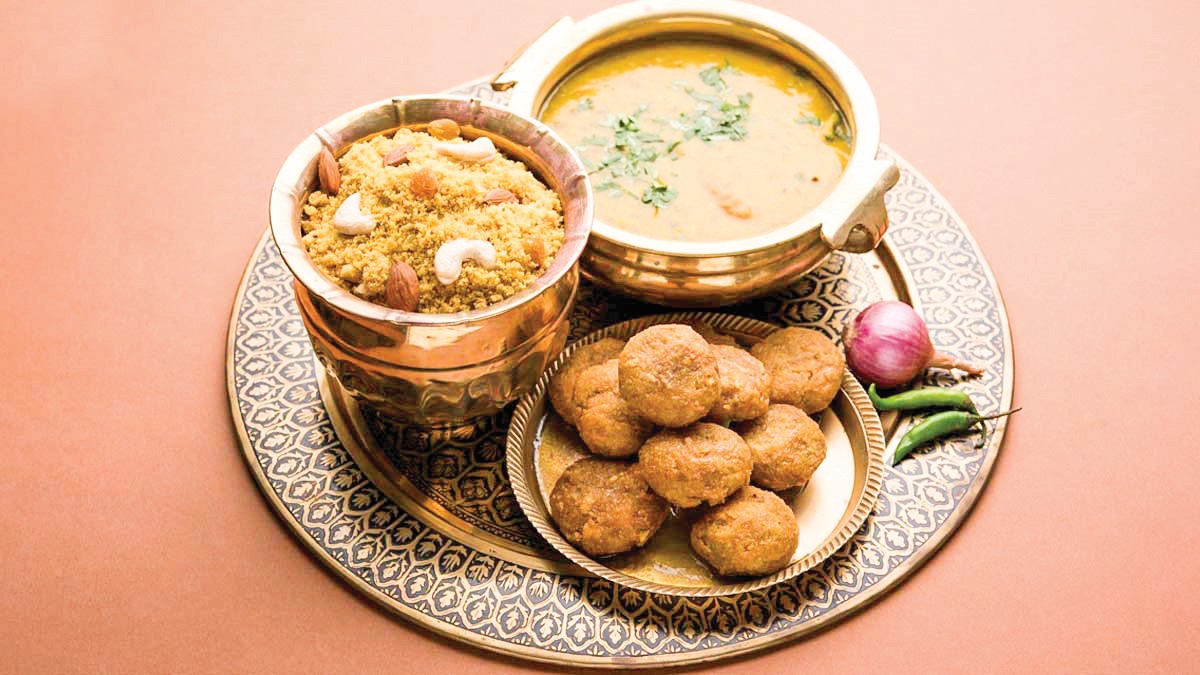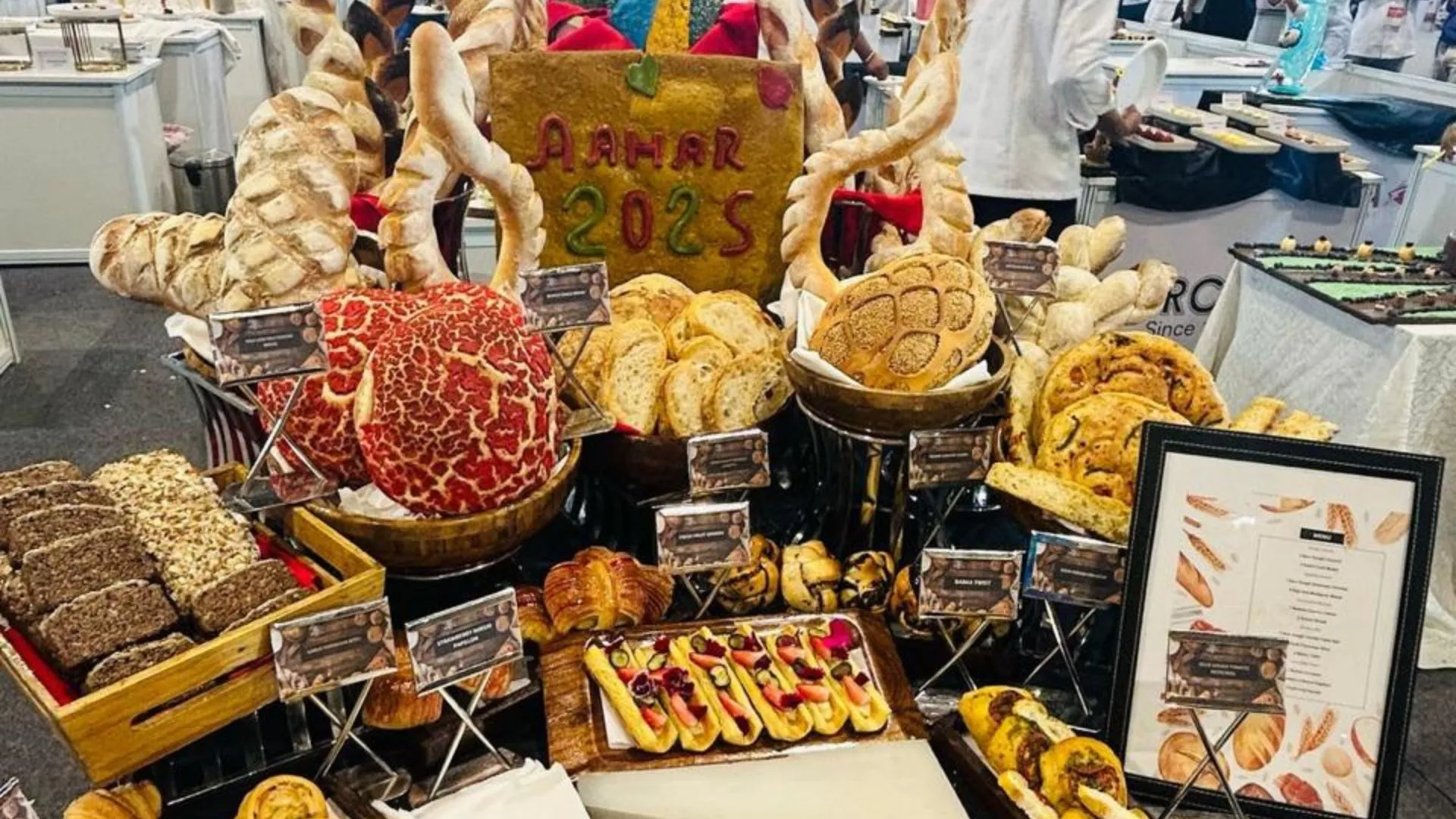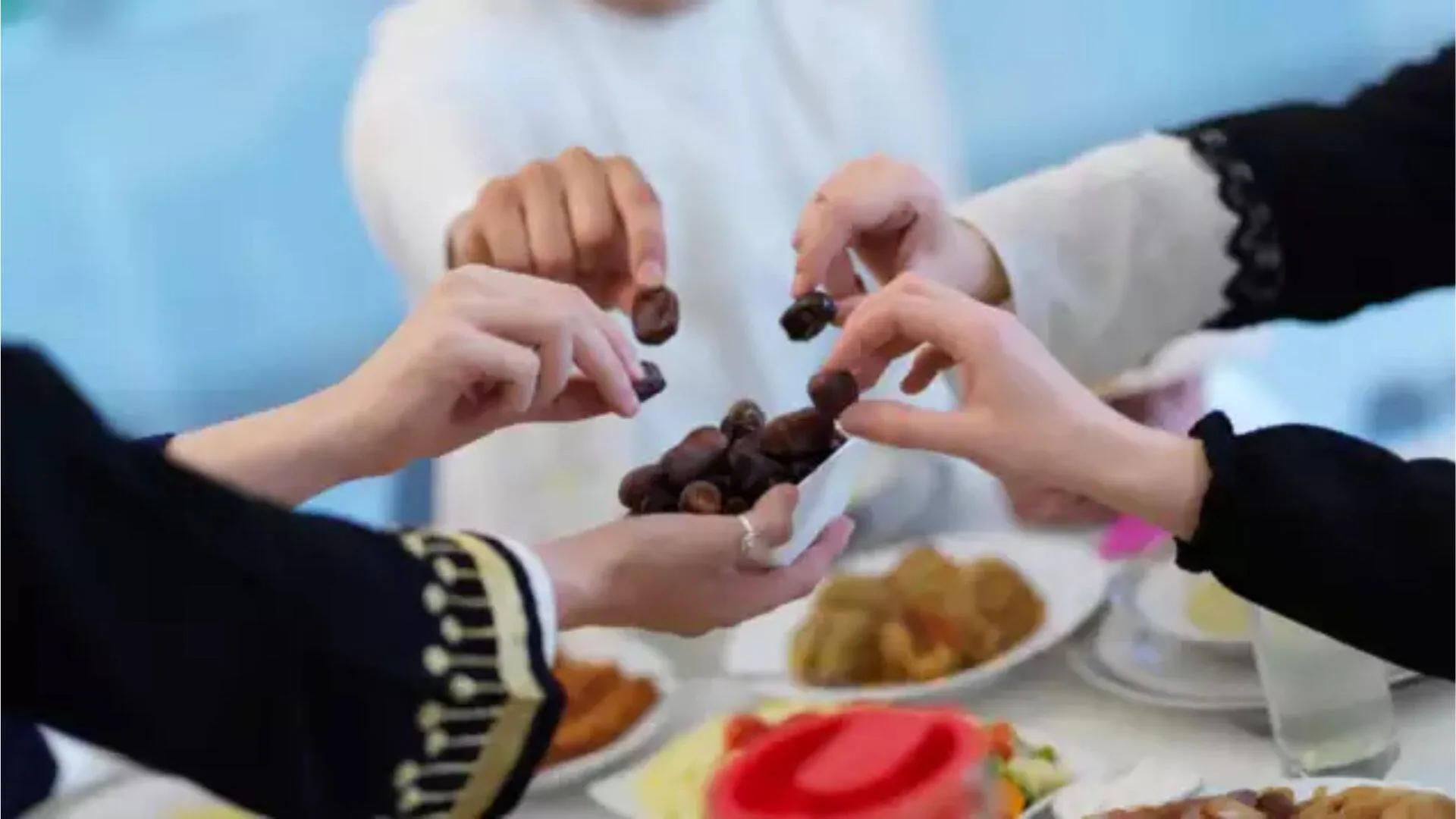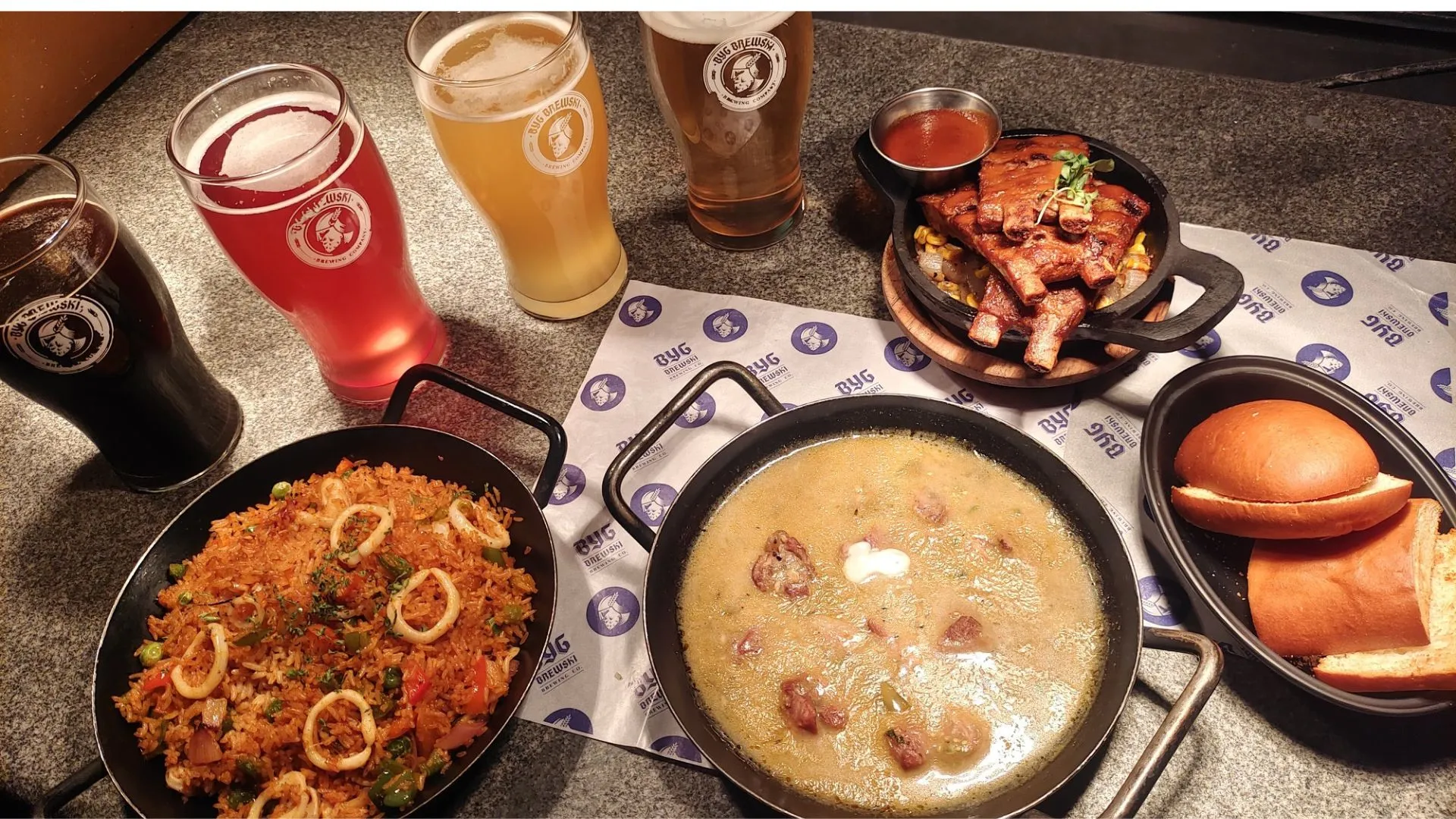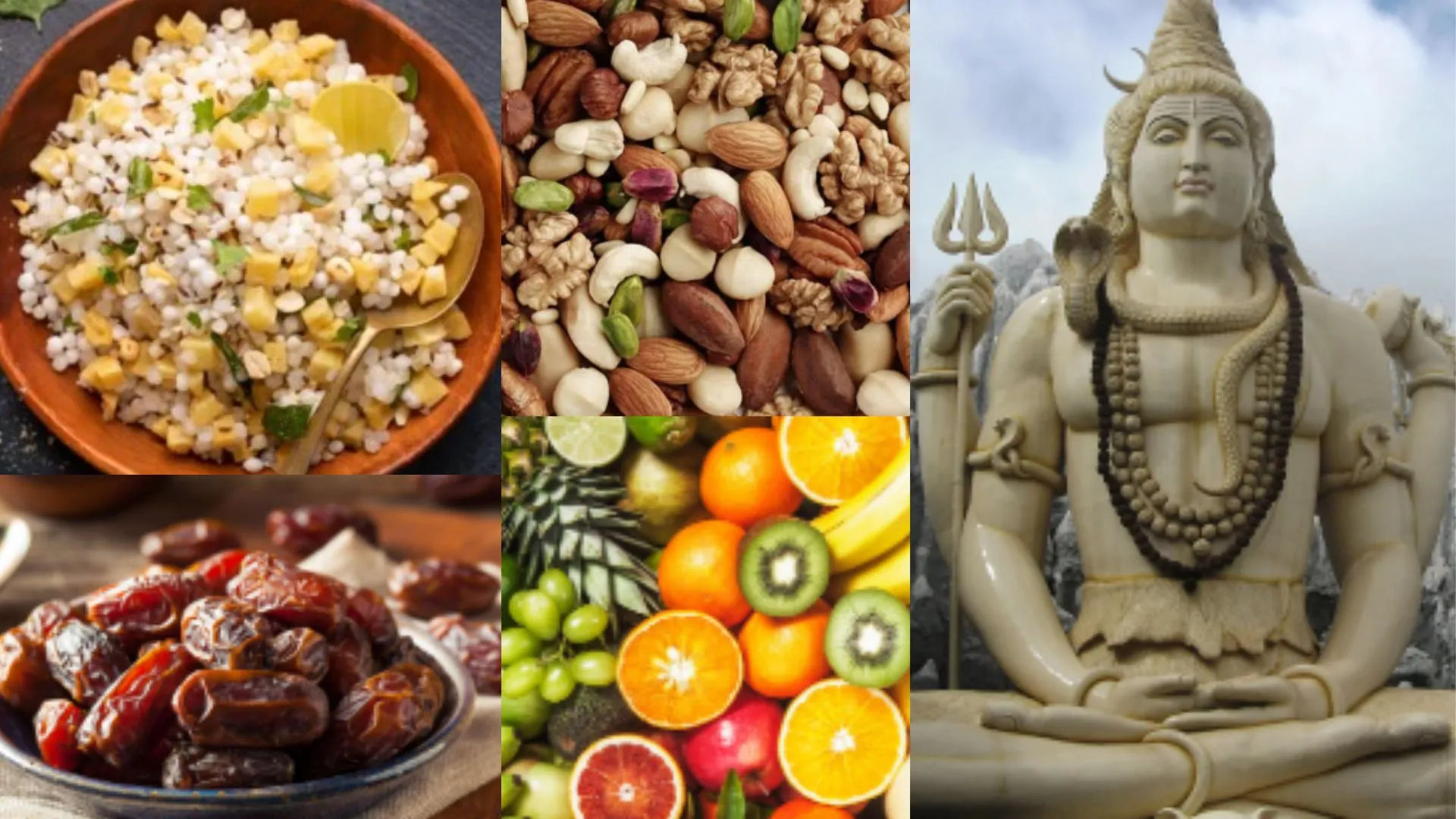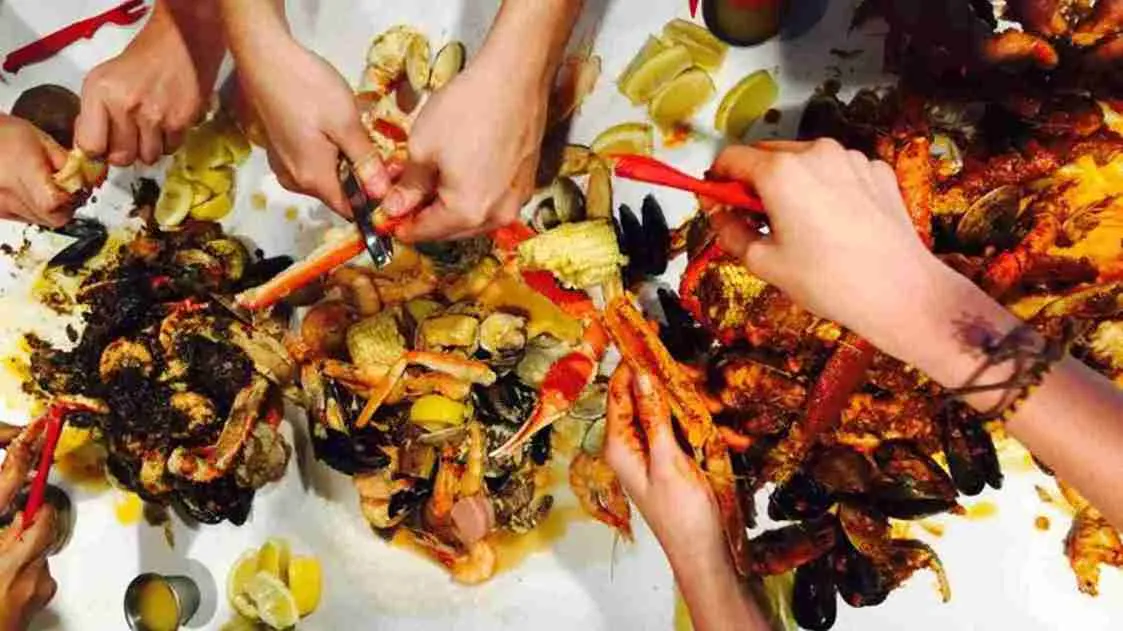The walls of the pink city’s buildings contain centuries of food tradition. As the early sun covers the town in pink colors, foodies may go on a food trip through Rajasthan’s traveling lanes, tasting unique delicacies that have stood over time. The city’s food scene resonates with its royal roots, with each dish telling a story of creative thinking, survival, and festivity.
A Traditional Rajasthani Breakfast
In the old city’s narrow lanes, the aroma of freshly made kachori fills the air. These crispy, flaky pastries stuffed with spiced moong dal and served with tangy tamarind chutney are a breakfast staple. Hot pyaaz ki kachori, filled with a spicy onion mixture, offers a better way to start the day.
No Rajasthani breakfast is complete without the iconic mirchi vada, green chilies stuffed with spiced potato filling dipped in gram flour batter, and deep fried to golden perfection. Pair these with a cup of masala chai served in traditional clay cups, and you’ll understand why locals swear by this morning ritual.
The breakfast scene also features the lesser known but equally delightful rabdi pyaaz, where slow-cooked rabdi (thickened milk) is served with crispy fried onions. This unique combination showcases Rajasthan’s food creativity.
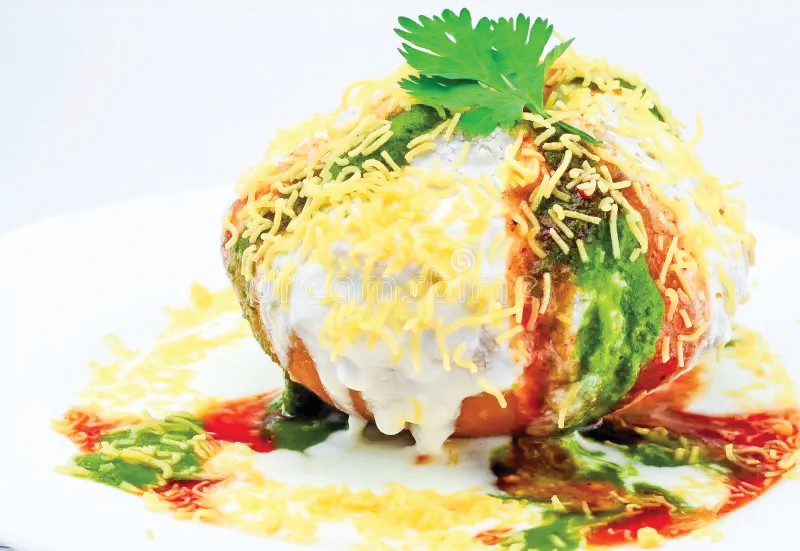
Mid Morning Delights, Street Food Safari
Post the sunrise, the streets come alive with vendors setting up their carts. This is the perfect time to try gol gappa, the local version of pani puri, filled with spicy mint water and tangy tamarind water. The Rajasthani variant often includes a special masala that gives it a unique kick.
Around the corner, you’ll find vendors preparing dal baati churma, Rajasthan’s most celebrated dish. Watch in fascination as they roast the baati (hard wheat rolls) in coal fire, crush them, and serve them drenched in pure ghee alongside panchmel dal (five lentil curry) and sweetened churma.
The lanes also offer tikki chaat, where spiced potato patties are smashed and served with an array of chutneys, yogurt, and crispy sev.
Don’t miss the raj kachori, a large crispy puri filled with an assortment of ingredients, including sprouted moong, pomegranate seeds, and spicy chutneys.
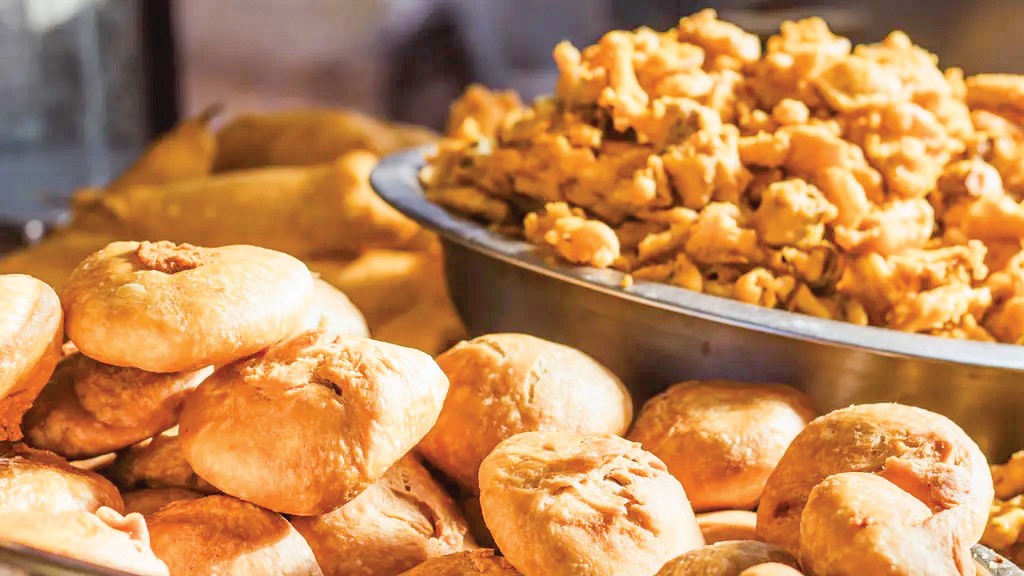
The lunch royalty, Royal Rajasthani Thali
Rajasthani thali, in all of its magnificence, is a royal dish that includes Ker sangri, which is a desert bean and berry preparation unique to Rajasthan; then there is Gatte ki sabzi, the gramflour dumplings in spicy yogurt curry; there is very famous Laal maas, the fiery mutton curry that’s a speciality of the Rajput culture; along with that, enjoy Bajre ki roti, a pearl millet flatbread slathered with ghee; Pittod ki sabzi, steamed gramflour cakes in yogurt gravy; chakki ki sabzi; A dish made from wheat dough dumplings, papad mangodi ki sabzi, sun dried lentil dumplings in gravy, Bajra khichdi, a hearty pearl millet and lentil preparation, and the spicy and bullet-like addition to the dish is the famous Rajasthani Lahsun ki chutney, a fiery garlic chutney that’s a local favorite.
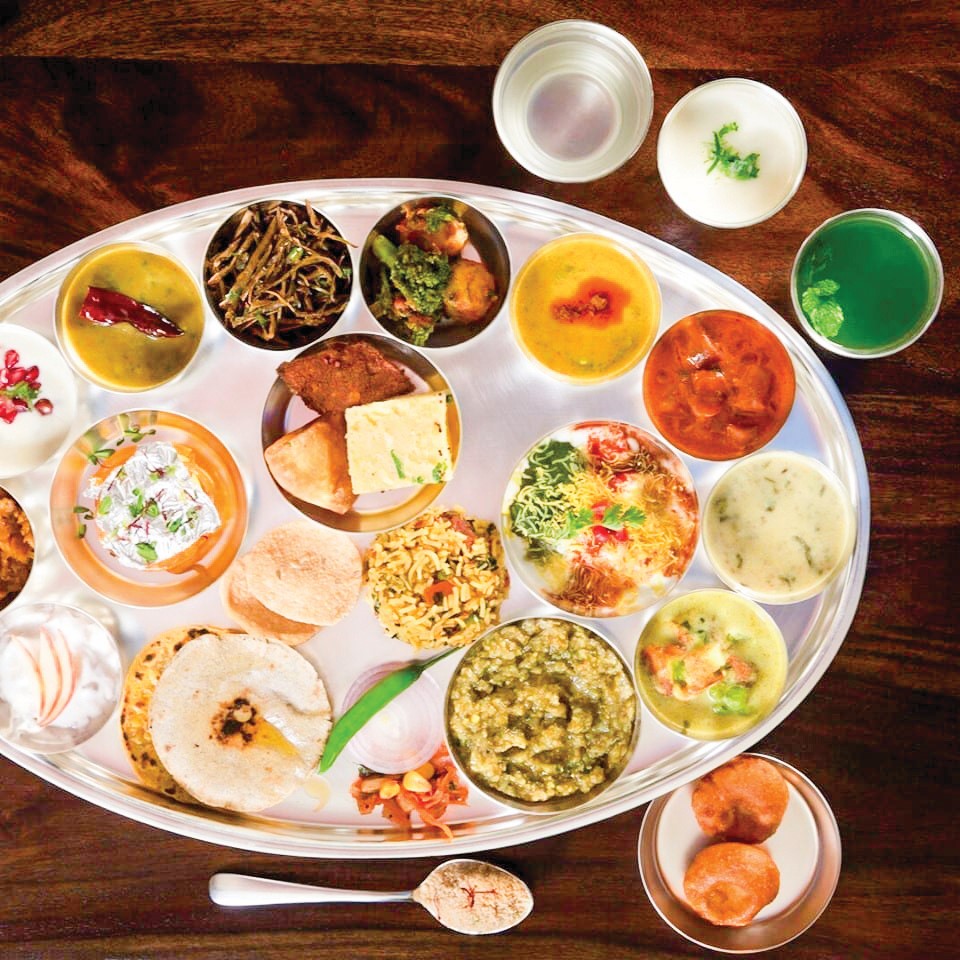
Evening Sweet and Savory Delights
As the afternoon heat goes away, the pink city’s sweet tooth comes alive. In the bustling lanes of the city markets, you’ll find Ghevar, The honeycomb-patterned sweet disk soaked in sugar syrup, often garnished with pistachios and rabdi, Mawa kachori, sweet dumplings stuffed with khoya and dry fruits, a specialty during festivals, Balushahi, the flaky, deep fried pastry glazed with sugar syrup, Kalakand, the grainy milk cake that melts in your mouth, Raj bhog, very large rasgullas stuffed with saffron-flavored khoya, Chhena malpua, a cottage cheese pancake soaked in cardamom-scented syrup.
For savory cravings, try the crispy samosas served with mint chutney or indulge in pyaaz kachori. The evening is also perfect for trying Rajasthani rolls, flatbreads stuffed with spicy potato, paneer, or minced meat fillings.
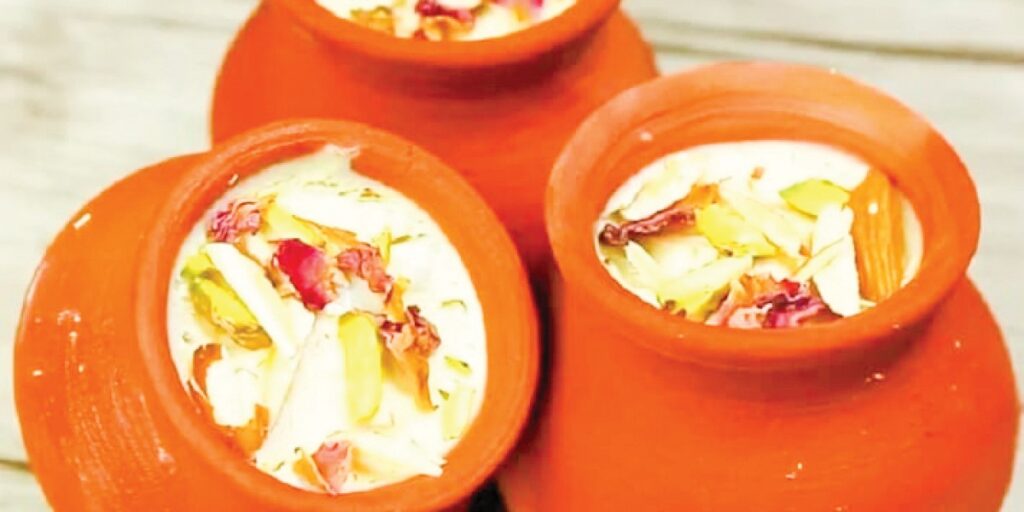
The Dinner Stories, A Grand Finale
As night falls, the pink city offers its final tasty delights to make the day worth your experience and give you a wholesome experience of the place with its best and most famous dishes of Rajasthan. Traditional restaurants serve thali meals featuring Safed Maas, a mild yogurt-based meat curry; Dal Bati Churma, the trio that defines Rajasthani cuisine; Missi roti, a gram flour flatbread spiced with herbs; Kadhi pakoda, fritters in tangy yogurt curry; Raab, a warming millet drink perfect for desert nights; Khad khargosh, rabbit meat slow-cooked in earthen pots; Jungli maas, a minimalist meat preparation from hunting traditions; Ker sangri, desert beans and berries in a spicy preparation.
Beyond the usual, street specials
Throughout your food walk, look out for these lesser-known delicacies like Kalmi vada, kidney bean fritters that pack a spicy punch, Besan ke cheele, savory gram flour pancakes, Rajasthani kadhi, Unlike its counterparts in other states, Khad khargosh, a traditional hunting style preparation; Bajre ki raab, a warming winter drink made from pearl millet; Makki ki ghat, a cornmeal preparation unique to the region; Panchkuta, a dish made from five different dried vegetables; Kadhi pakoda, fritters in a yogurt-based curry.
The Sweet Endings
No food walk in Jaipur is complete without these delicacies, such as moong dal halwa, A rich dessert made from split yellow lentils, Malpua, Sweet pancakes drenched in sugar syrup, Mishri mawa, A specialty sweet made with crystal sugar, Choorma ladoo, Crushed baati mixed with ghee and sugar, Besan chakki, Gramflour fudge with cardamom, Gond ke ladoo, Energy rich sweets are perfect for winter.
Tips for the Food Walker
Start early to avoid the heat and crowds.
Carry water and walk at a leisurely pace.
Space out your meals to try more dishes
Look for busy stalls with high turnover.
Trust local recommendations.
Observe hygiene practices.
Carry some digestive aids.
Wear comfortable walking shoes.
Take breaks between heavy meals.
Try to eat where locals eat.
The pink city’s food culture is as rich and varied as its architectural heritage. From streetside stalls to heritage restaurants, every corner offers a new flavor, a different preparation technique, and a unique story. This food walk isn’t just about eating; it’s about experiencing centuries of food evolution, understanding how the harsh desert climate influenced cooking techniques, and appreciating the ingenuity of Rajasthani cooks who created a cuisine that’s both sustainable and spectacular.
As you walk through the pink city, you’re not just trying out street food; you’re taking part in a living tradition that continues to evolve while staying true to its roots by experiencing the same taste and variety of food that the royal kings used to enjoy. Every bite tells a story of survival, celebration, and the indomitable spirit of Rajasthan’s people, who turned the limitations of a desert region into amazing food varieties and new taste combinations. The food of Jaipur is a reflection of the city’s ability to preserve its heritage while embracing change, making it a must-visit destination for food lovers from around the world.ii

